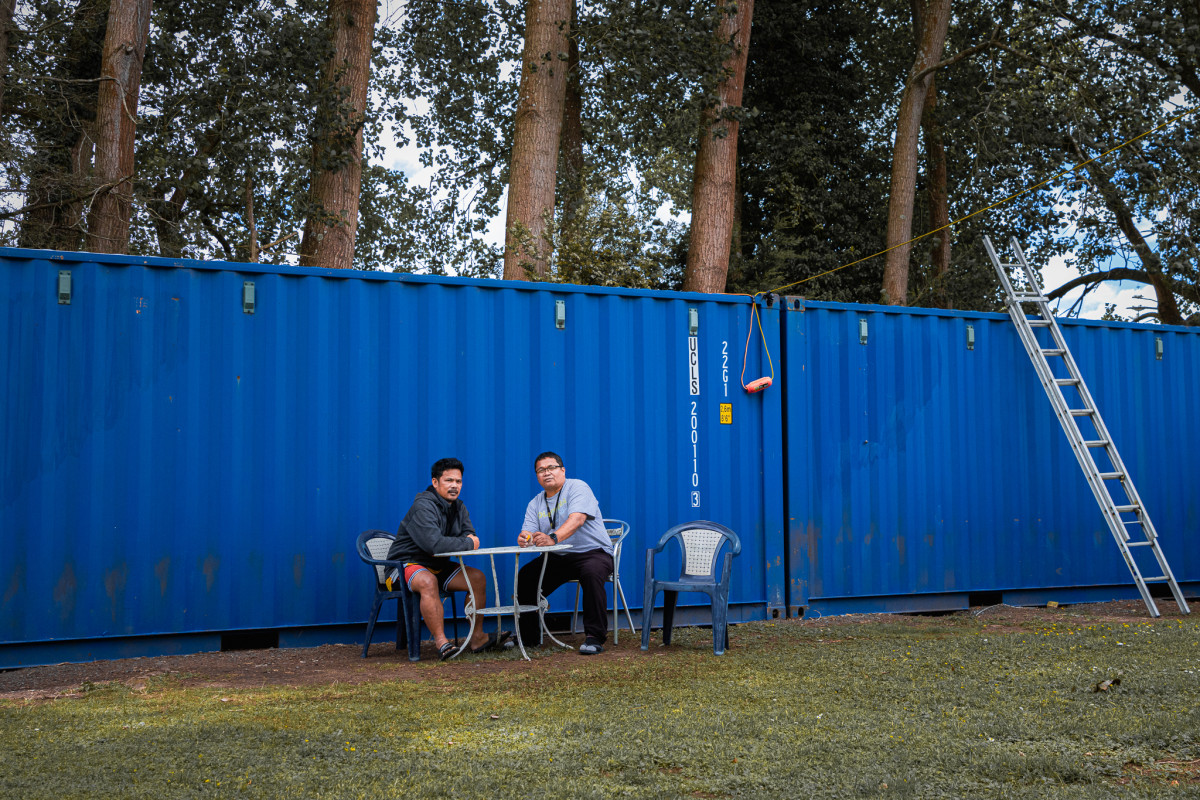
Photo by Vivien Beduya
Jerry Pagatpat, Justine Aspa and nine other Filipino migrant workers were close to living in their cars after losing their jobs and leaving a work environment they allege was exploitative.
It wasn’t until they met a couple who they call their heroes, Mitch and Bert Schuurkamp, who offered for them to stay in large shipping containers on their South Auckland property for free until they could get back up on their feet.
The migrants allege they’ve been underpaid by their former employer Mel Escobar, owner of Stone Paving & Concrete Finishing Limited.
The company went into liquidation on November 4 but Escobar told Re: News he denies all the allegations.
The majority of the workers found new jobs so only four remain living in the shipping containers until they can get their Migrant Exploitation Protection Work Visa (MEPV) and find work.
If a migrant worker has reported exploitation while on an employer supported work visa, the MEPV will allow them to leave that job and work for any industry for up to six months while the exploitation is being investigated.
Jerry, Justine and Escobar spoke in Tagalog and Mitch spoke in Bisaya, two regional languages of the Philippines, and their quotes have been translated.
Hopes for a better life were crushed
Jerry arrived in New Zealand in November 2023. It’s the 42-year-old’s first time outside of the Philippines, where he’s had more than 20 years experience in masonry and concreting.
He says his dream was to get his family out of poverty and had high hopes for a better life.
He says he just wanted to send his three kids to school through to university and build even just a small house for his family in the Philippines.
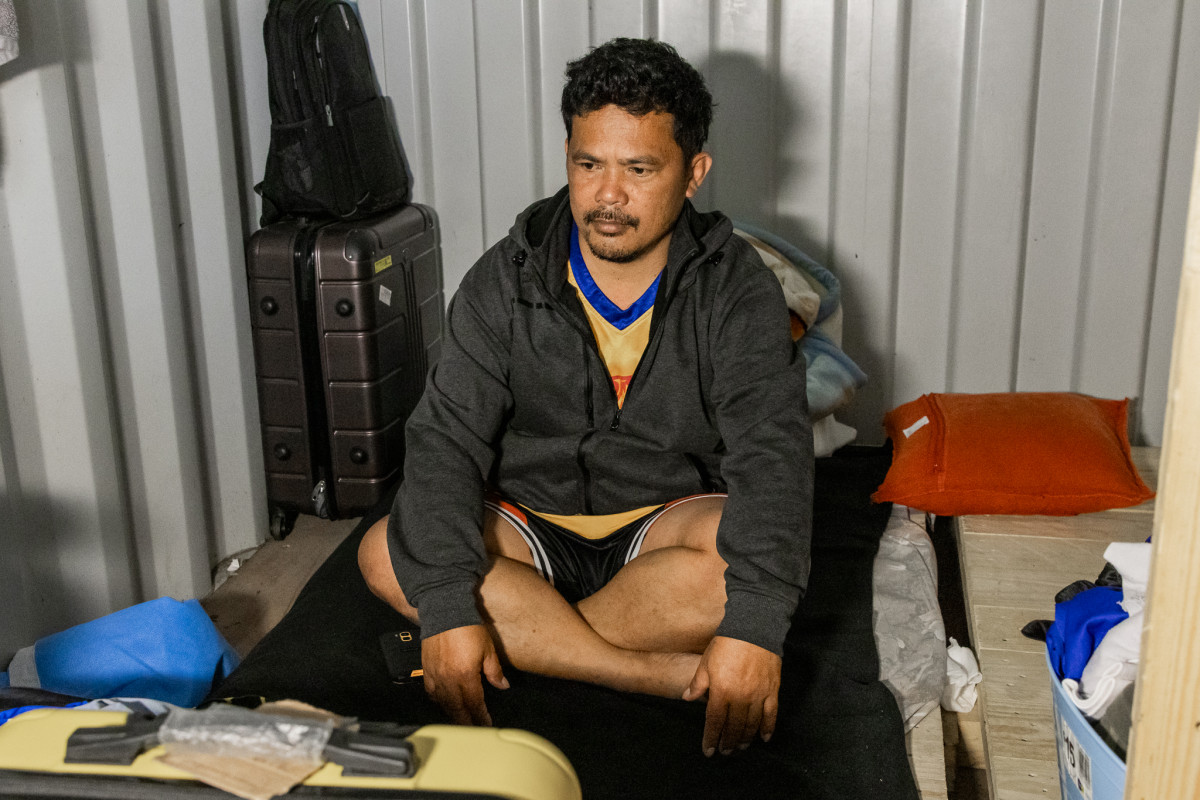
Photo by Vivien Beduya
Now sleeping on a pallet, he says this is more comfortable than having to sleep in a car where he won’t be able to straighten his back.
There are three containers – two of them for sleeping and the third is a kitchenette.
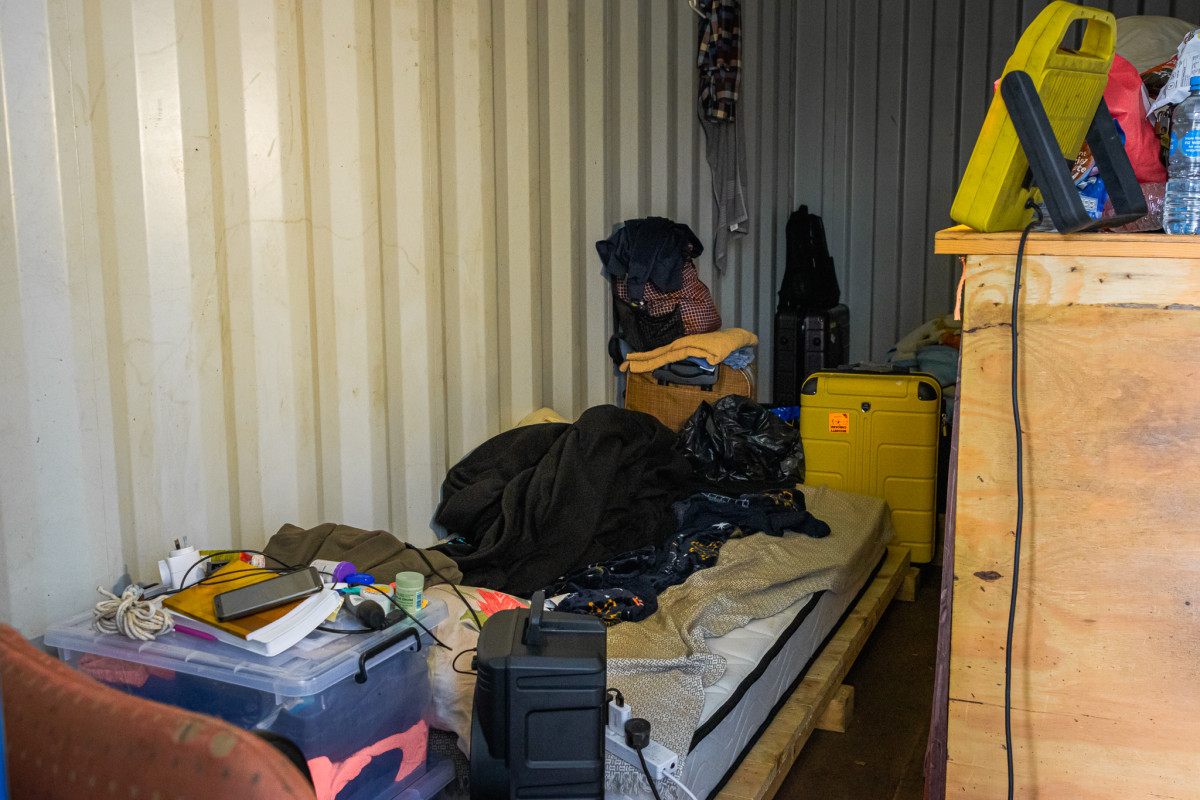
Photo by Vivien Beduya

Photo by Vivien Beduya
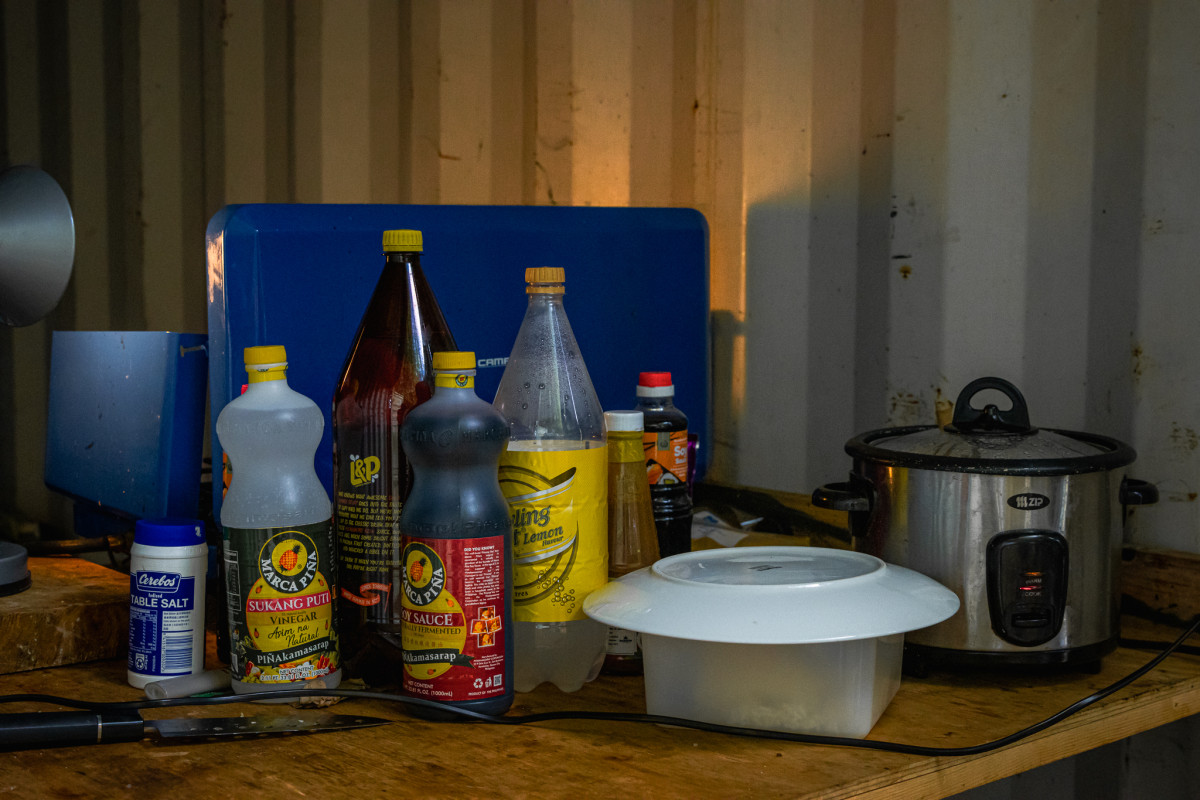
Photo by Vivien Beduya
Propped between logs and a pile of rocks is a makeshift shower with no plumbing so the men could boil water and put it in buckets for a shower.
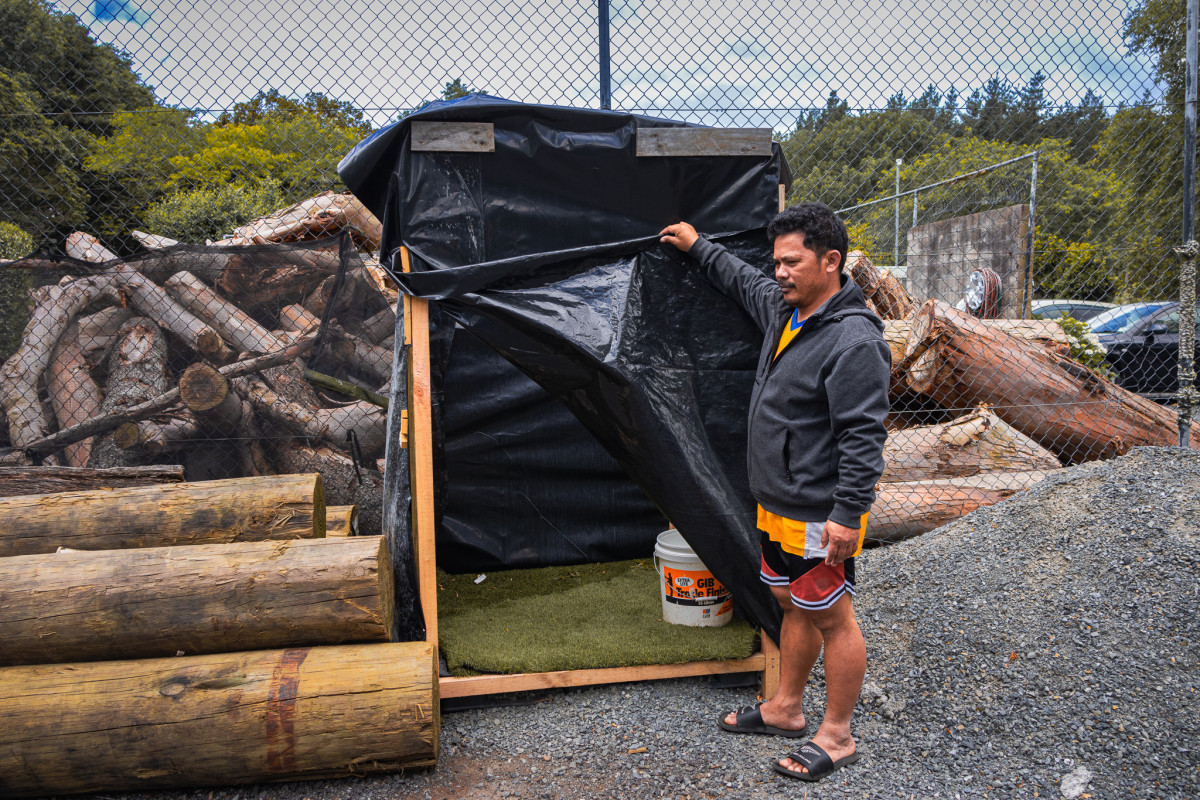
Photo by Vivien Beduya
They also have a portaloo, which is maintained weekly by a third-party provider.
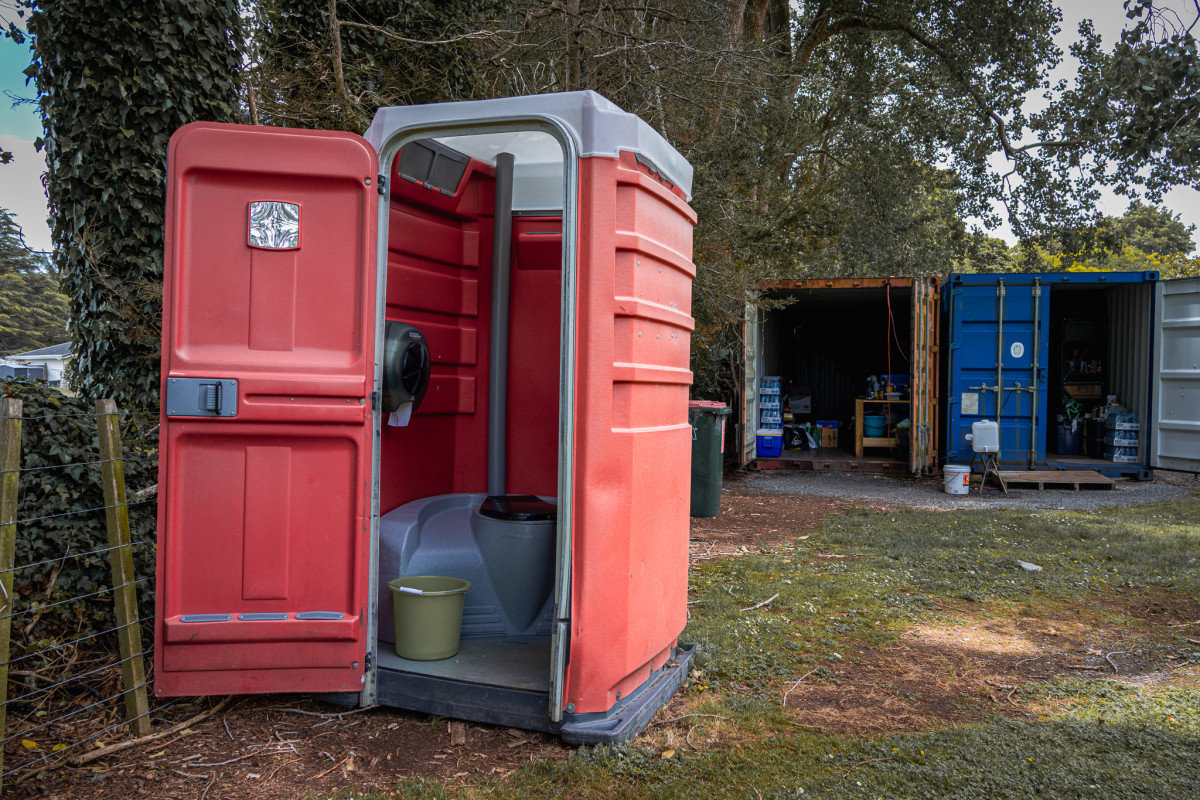
Photo by Vivien Beduya
Jerry says back home, the money he’s saved for his family is running dry and that without a job, his debt for his children’s school fees are growing.
“Our first priority is our families. We can endure whatever can happen to us here, but not our children, our families, they can’t go hungry,” he says.
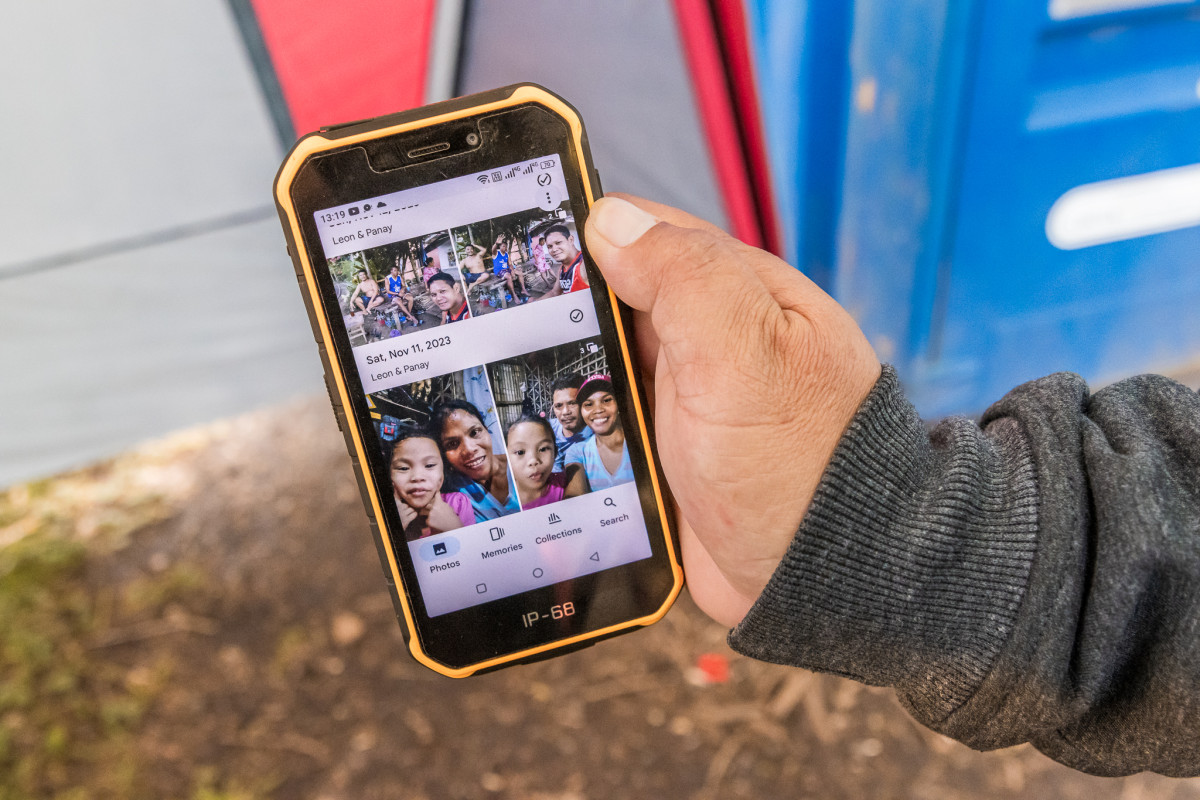
Photo by Vivien Beduya
But there’s a glimpse of light in the tunnel as his MEPV has just been approved, which allows him to work in any industry for six months.
“I’ll just focus [on] the six months left on my [exploitation] visa to find a job… I’d really like to get a job in masonry, because those are my skills,” Jerry says.
However any chance of staying longer would mean finding an accredited employer who would hire him to get a work visa.
Jerry calls New Zealand beautiful despite his experience, and says other Filipinos who are looking to come here shouldn’t be dismayed, as long as they have the right employer.
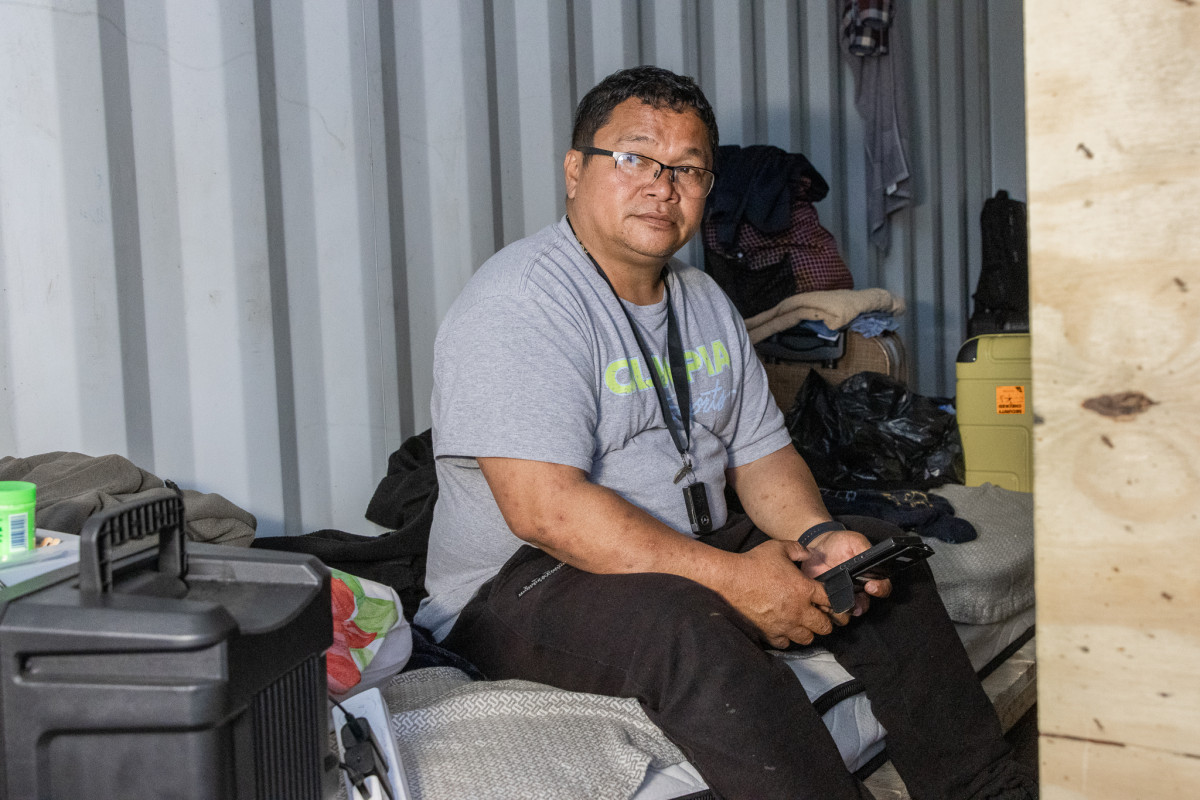
Photo by Vivien Beduya
Justine Aspa worked overseas before moving back to the Philippines in 2021, and then moved to New Zealand in February this year. He has more than 20 years experience as a welder.
The 48-year-old had a junk shop and metal crafting business and gave that up to move to New Zealand for a chance at a better life. He says he got a loan for about $10,000 to pay the company for a visa and relocation costs.
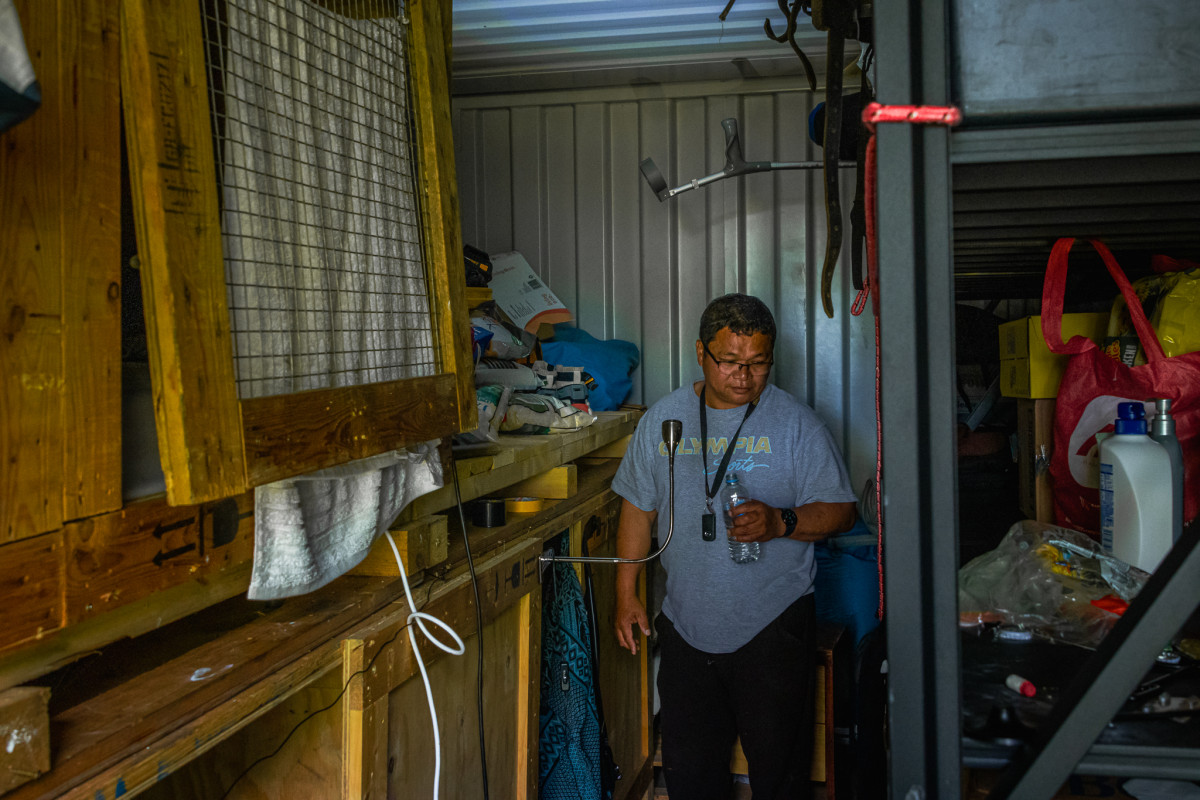
Photo by Vivien Beduya
Justine says he worked as a team leader in the company and alleges he started noticing other workers’ payslips weren’t being paid the amount of hours they worked.
Employer rejects all allegations
Mel Escobar told Re: News all the allegations against him are fabricated, and claims the workers have known about his financial struggles all along and he told them he needed to shut the business.
Escobar says other companies who owed them money have also gone under, but the workers asked him not to close.
He also referred other questions to the liquidator, Pritesh Patel, who says it’s still unclear whether this is a case of migrant exploitation.
Patel says Escobar has extended himself and reached out to the employees, giving them letters to take to Immigration New Zealand (INZ) to obtain visas and the Philippine embassy for support.
He says he has also tapped into his network to help some of the employees find jobs in other companies and about seven of them have now been employed since.
Immigration NZ compliance and investigations general manager Steve Watson says they are assessing a complaint about Stone Paving Concrete Finishing.
“We are unable to comment further while the complaint is being assessed. This is to protect the integrity of our processes. An investigation into the company could be an outcome of the assessment.”
While Justine has just got his MEPV, he’s still on the hunt for a job.
He hopes that more scrutiny and regulation is put in place for accredited employers who are hiring migrant workers to avoid this from happening again.
INZ Deputy Chief Operating Officer Jeannie Melville says it’s critically important that employers applying for accreditation are financially viable and don’t leave migrants in a vulnerable position, which is why most are asked to provide evidence their business is viable and genuinely operating when they apply.
“However, we acknowledge the current tough economic environment and the impact this is having on employers, and both New Zealand and migrant workers as well.”
She says a business’ situation can change after receiving accreditation and this is why they conduct post-accreditation checks to ensure they meet the requirements to be a good employer.
“It is also why we do further checks when an employer applies for a renewal of their accreditation.”
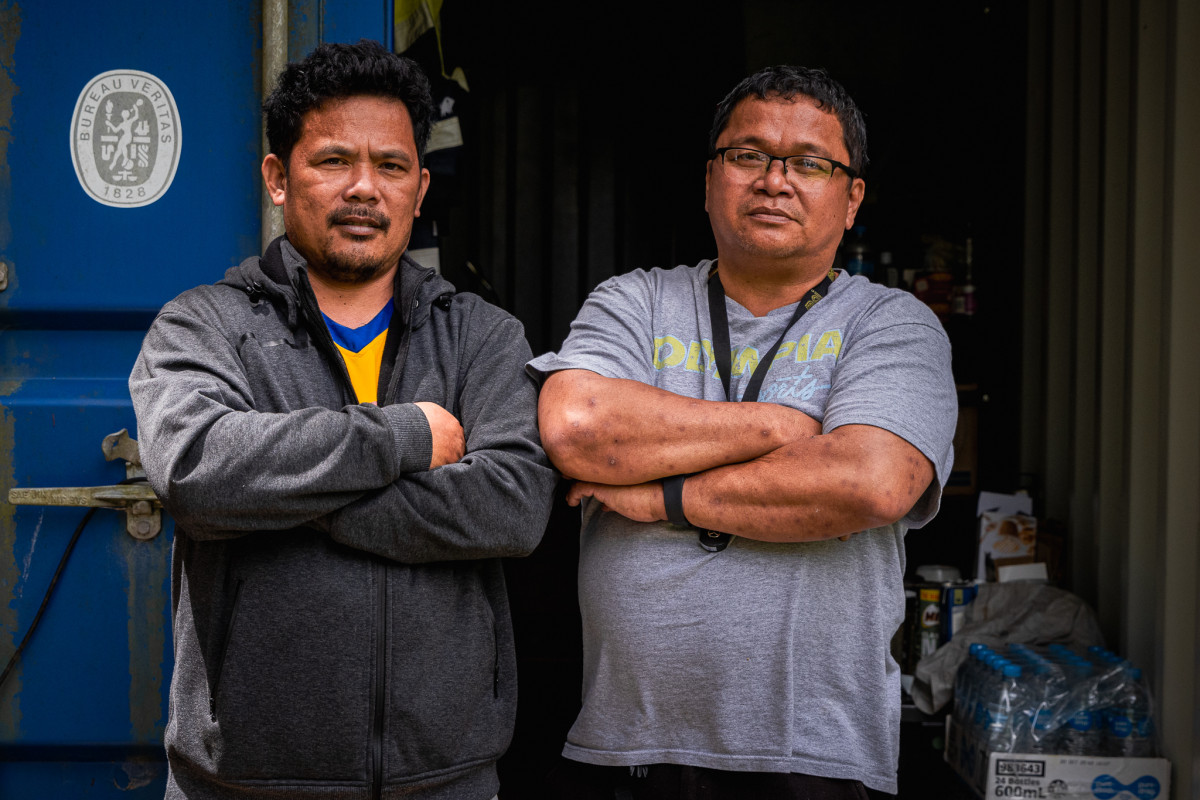
Photo by Vivien Beduya
Overwhelming support from the Filipino community
Jerry and Justine call Mitch and Bert Schuurkamp a gift from heaven.
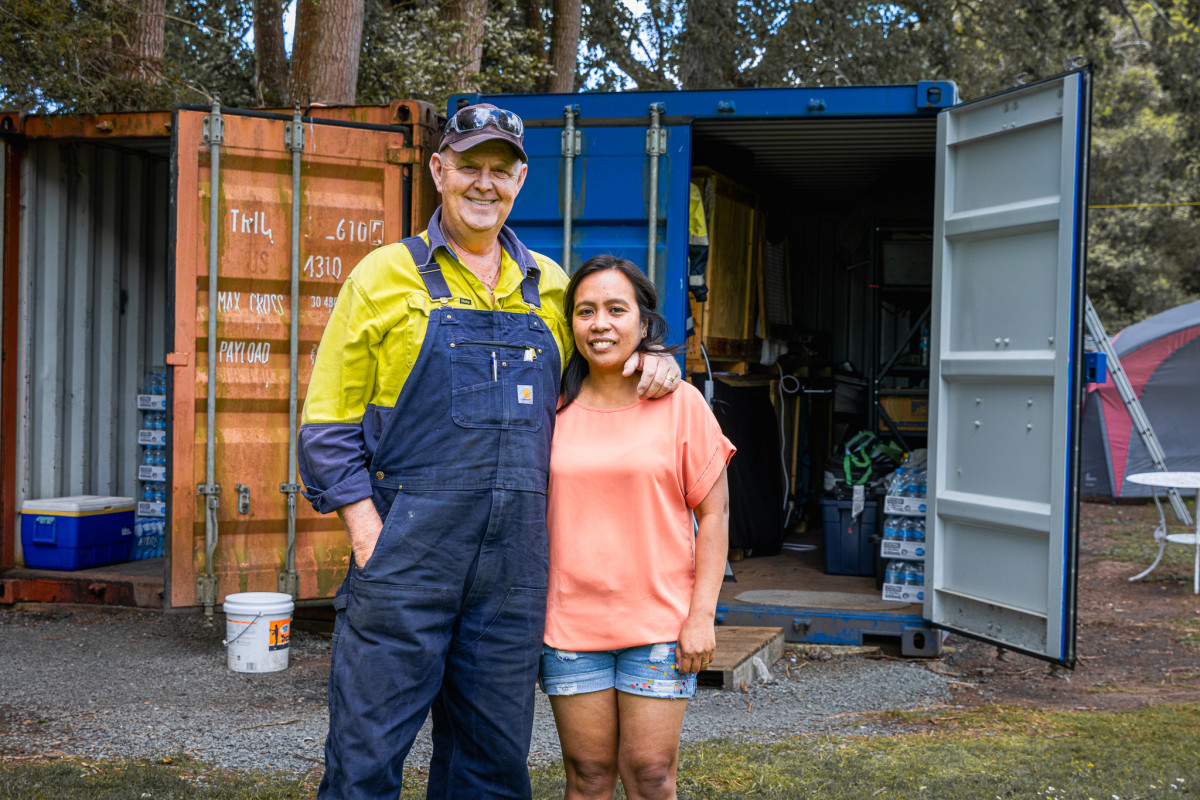
Photo by Vivien Beduya
Mitch says when she first met the workers, she saw all their belongings in their cars and it broke her heart to see fellow Filipinos struggling.
So she and Bert asked them if they would like to stay in the shipping containers for the meantime instead of their cars, which they gladly accepted.
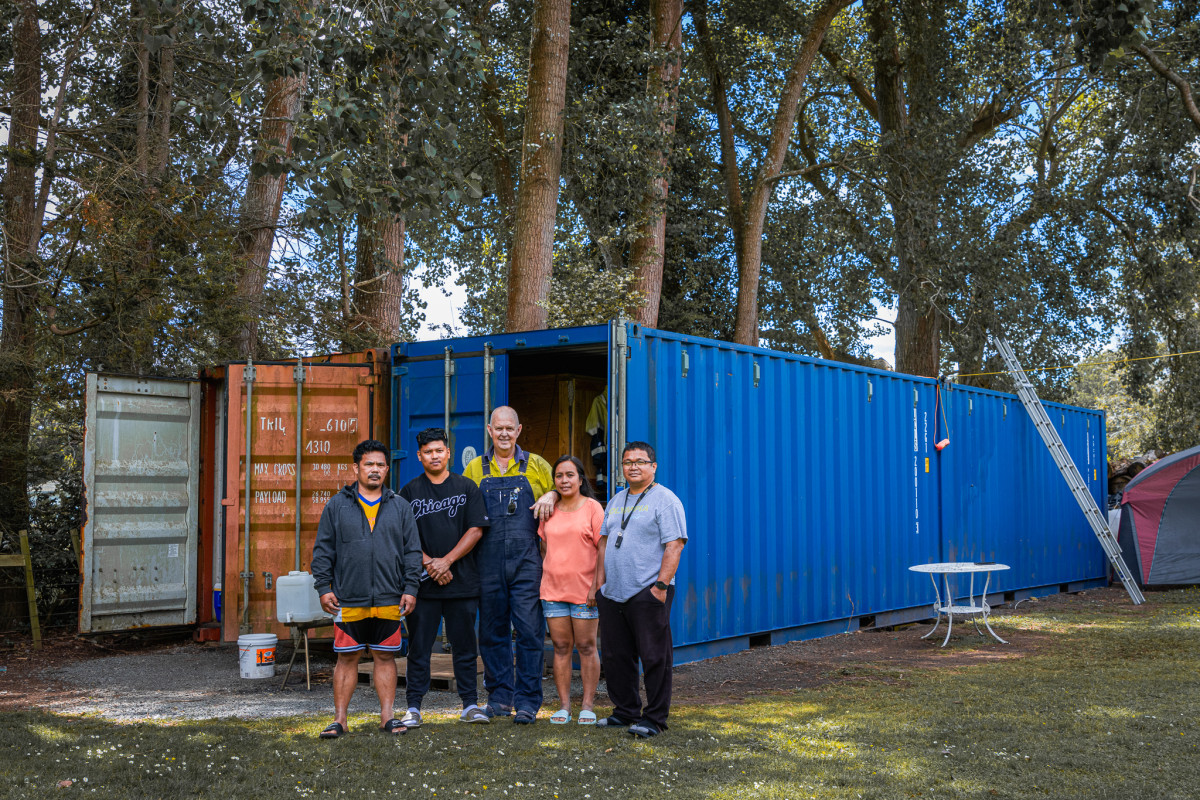
Photo by Vivien Beduya
Mitch says once word got out to the Filipino community, donations of food, drinks and other stuff kept flowing in.
She says they’ve been given so much meat and bread that she’s stored them in the chest freezer inside the house so they won’t go bad.
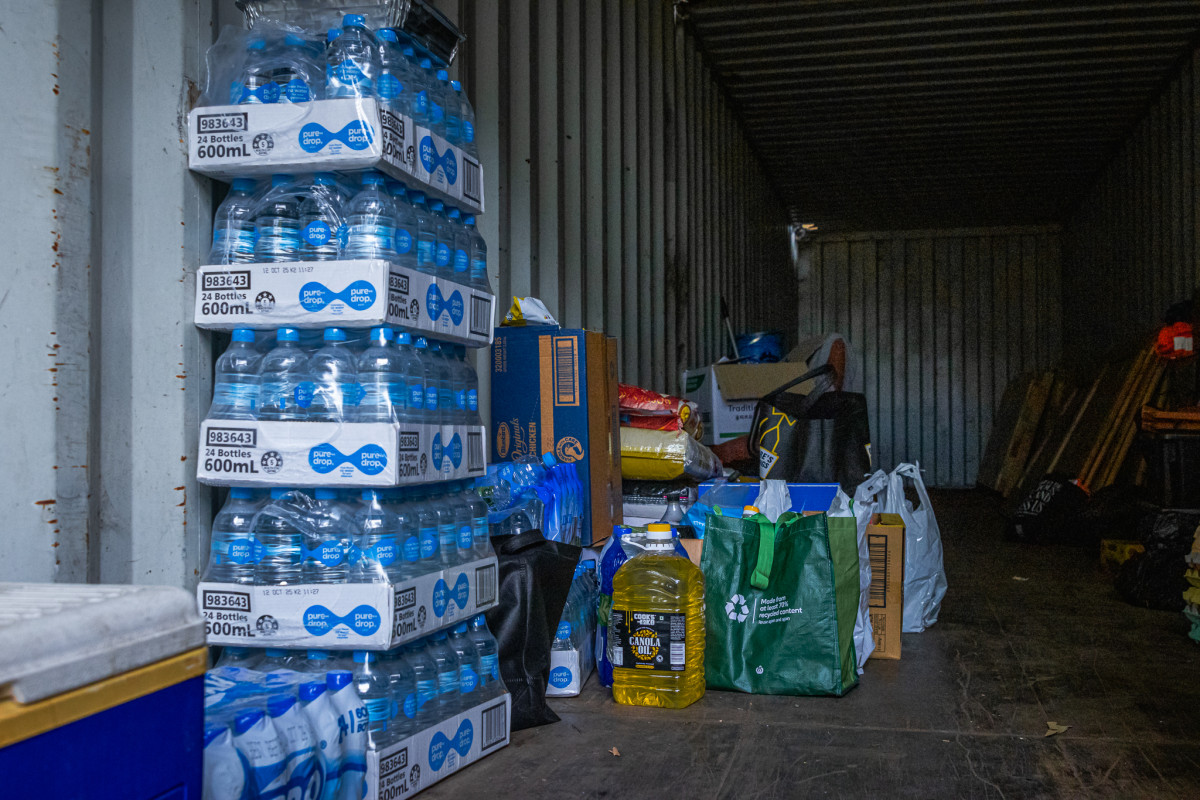
Photo by Vivien Beduya
The workers have also been gifted several bags and sacks of rice – a staple in Filipino cuisine.

Photo by Vivien Beduya
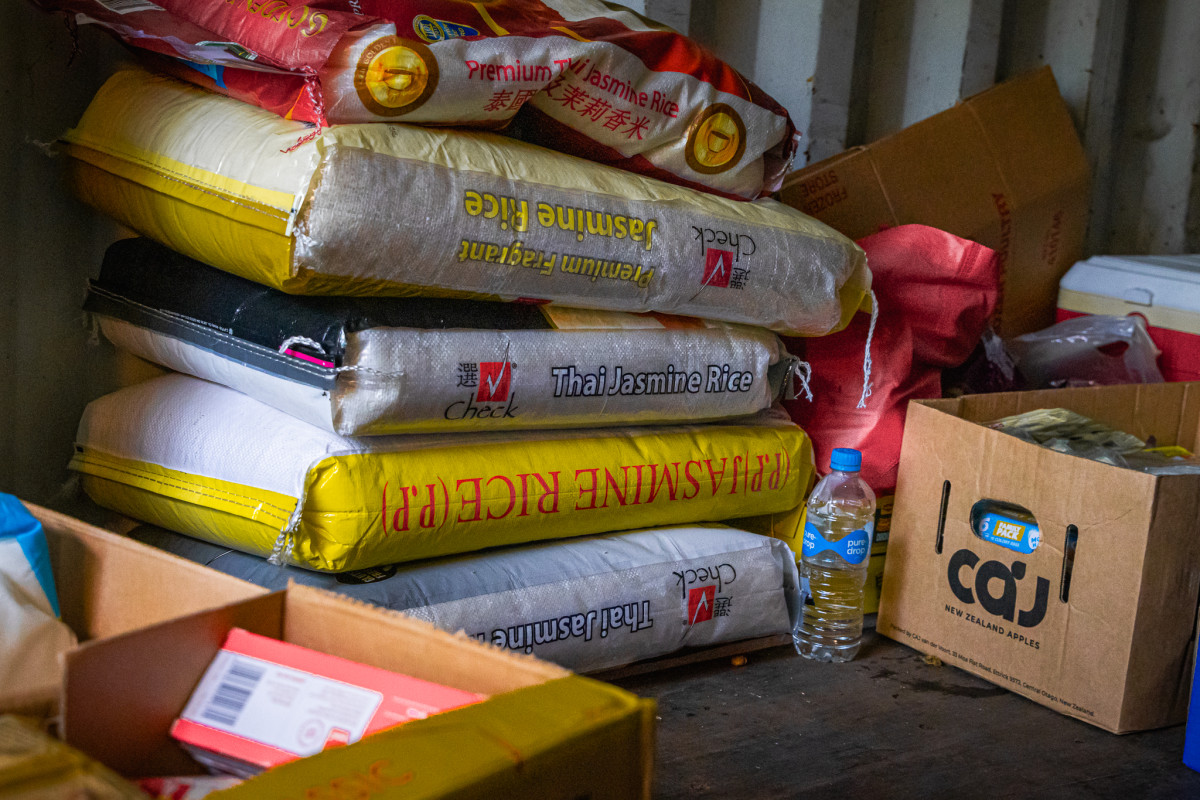
Photo by Vivien Beduya
Justine says they’re really happy with the unexpected support they’ve been getting from the community.
“So much blessings have come since the community found out about our situation… People are always asking for what we need.
“We hope there’s something good that will come out of our case as well because we have so much family back in the Philippines who are depending on us.”
More stories:
Two Pacific women on their representation in NZ
"No matter what corner of Aotearoa we are in, we are repping what it means to be of the moana."
Why translating for parents can force kids to grow up too fast
Some children may grow up feeling like they lost their childhood, a psychologist says.
If you’re lonely, you’re not alone. Loneliness is reaching epidemic levels
“Loneliness isn’t just a matter of finding more friends for people.”